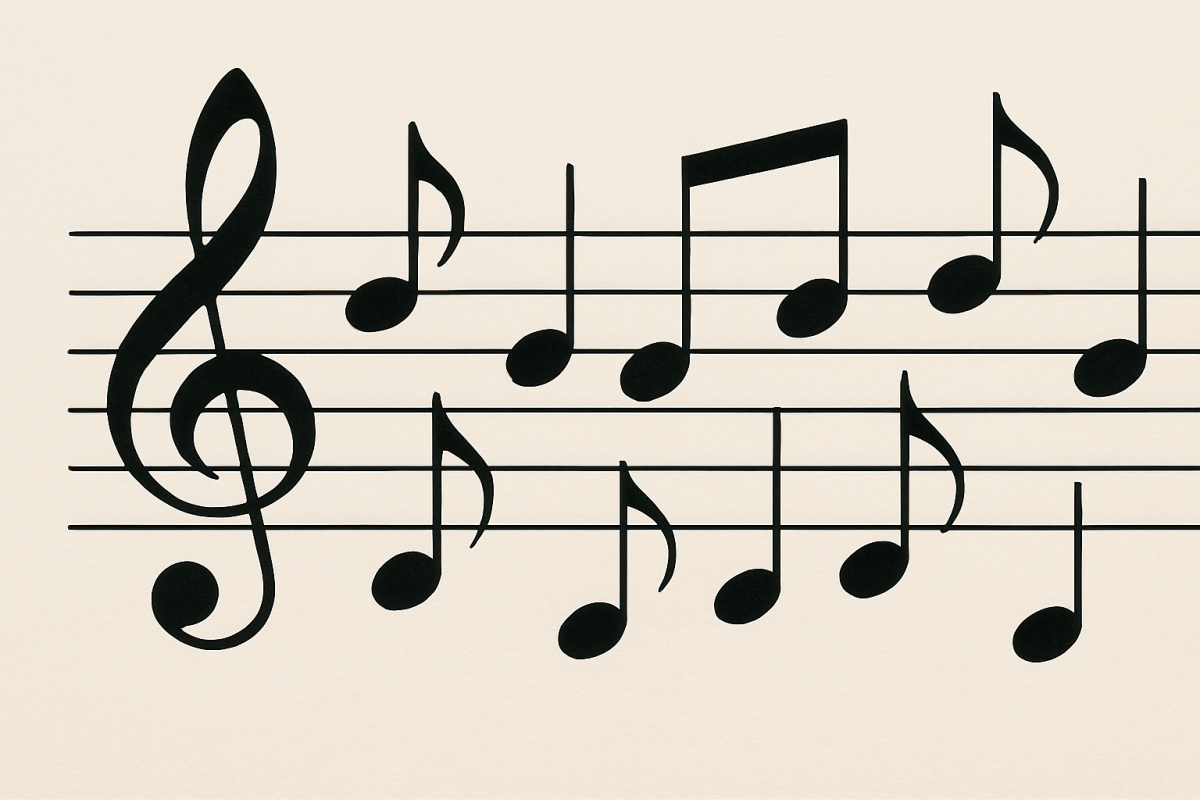Music is so much more than simply entertainment. It can be a powerful tool that can positively impact our state of mind and well-being. The right type of music can leave a lasting effect on one’s relaxation, focus, or mood. Music helps lower stress, boost mood, and enhance concentration if utilized deliberately, such as while doing homework.
One of the most concrete benefits of music is its de-stressing capability. The University of Nevada states that listening to calming, slow music will help release stress. They confirm that music around 60 beats per minute can allow the brain to be in sync with the beat which creates the alpha brainwaves. These alpha brain waves are those with a frequency of 8-14 hertz. They are present when people are relaxed and conscious. This music slows down the heart rate, calms down the nervous system, and provides an inner sense of calm. Additionally, listening to calming music for 45 minutes has the capability of inducing sleep.
Aside from stress relief, music is also a great mood lifter. Music has the ability to transport someone to a new state of mind. Listening to a happy, energetic song, particularly those written in major keys, can immediately change our mood from depressing to bright. Not only is this a psychological phenomenon—music is actually affecting the brain. Harvard Medicine Magazine writes that music activates emotional responses in the hippocampus and amygdala in our brains. It also can light up the limbic system, which controls pleasure and reward. Whether you are having a tough day or just need a little extra energy, listening to feel-good music can provide a quick and enjoyable boost.
Music can enhance people’s moods because it can trigger the release of Dopamine. UW Medicine says that Dopamine, a neurotransmitter that is an aspect of the brain’s reward system, helps people feel pleasure and motivation. If you listen to music that you like, your brain releases a burst of dopamine, which not only enhances the mood but also makes us more attentive and focused. Such a natural reaction can make us more alert and energized to work, especially work that involves exertion of your mind and body.
While music definitely influences how we are feeling, it will also have an influence on how we are able to concentrate. Dr. Masha Godkin, a professor in the Department of Marriage and Family Sciences at National University, says, “Music activates both the left and right brain at the same time, and the activation of both hemispheres can maximize learning and improve memory.”
Students can also use music effectively as a study tool. Applied with some thought, it can maintain attention levels over extended periods of study and reduce mental fatigue related to school work
There are specific genres of music that enhance focus the most. National University states that listening to soothing classical music can increase mood and productivity. They also say that ambient noise or natural sounds can make a great background noise for focusing. In general, music without lyrics, such as lofi or jazz, can be perfect for studying because it is unobtrusive and heightens memory. However, the best kind of music to listen to is music you enjoy. Forcing yourself to listen to music that annoys you will only increase stress, not reduce it.
Overall, music is an accessible but reliable way to create psychological wellness and productivity. Ranging from reducing stress and improving mood to concentration and the release of dopamine, the uses of music are psychological as they are logical. With some choosing music in terms of speed, type, and task, individuals, especially students, can use music to their advantage in life and academics.





